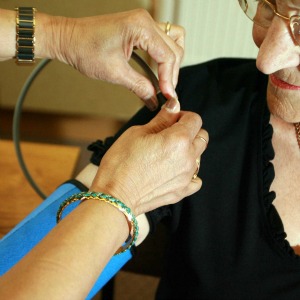A review of major UK guidelines for monitoring chronic diseases in primary care has found most are based on expert opinion and that even when evidence is cited it is not clear whether recommended tests within the guidelines are necessary.
The review, published in the BMJ and conducted by researchers at the University of Bristol, looked at guidelines for monitoring type 2 diabetes, hypertension and chronic kidney disease, produced by organisations including NICE, the Scottish Intercollegiate Guidelines Network and the RCGP, and found the advice varied widely.
Recommendations about how frequently tests should be carried out are ‘entirely’ based on expert opinion, according to the researchers, from the Government-funded National Institute for Health Research.
When reviewing each guideline, the authors found no recommendations for monitoring were based purely on evidence – and all included the expert opinions of the guideline development group members.
They found that where evidence was referred to, it often did not address the questions of whether the test was beneficial and necessary for monitoring.
Advice on the frequency of testing varied between all the guidelines, for example with SIGN recommending annual testing of renal function in patients with type 2 diabetes and NICE recommending that testing intervals should depend on the patient’s previous renal function results.
The authors highlighted ‘there is no evidence to support frequency of testing of any test in any of the guidelines’ and that ‘recommendations regarding frequency of testing are entirely based on expert opinion’.
GPs may, as a result of these uncertainties, be carrying out unnecessary additional testing, warned the researchers.
The paper said: ‘Unnecessary testing in a low prevalence setting such as primary care is more likely to lead to false positives, which in turn can lead to cascades of follow-up testing. This can generate anxiety for patients, increased workload for doctors, and increased costs for the health service. False negative results, on the other hand, may lead to false reassurances and delayed diagnosis.’
The review calls for more rigorous research methods to develop evidence-based recommendations on monitoring chronic disease.
The researchers said: ‘Robust evidence for optimal monitoring strategies and testing intervals is lacking. Most of these recommendations are based on expert opinion, provided by the respective guideline development groups. None of the recommendations are solely based on evidence.’
They concluded: ‘We recommend using the current guidelines where clear testing recommendations are given, as they are based on the best available evidence. These guideline recommendations should feed into, rather than override, discussions with patients that incorporate their values and preferences.
They added: ‘In the absence of clear evidence… GPs should ensure that there is a clear clinical rationale for each test that they perform. As chronic disease monitoring is often delegated to nursing staff or healthcare assistants, GPs should consider offering training about these uncertainties and the potential harms of over-testing to the wider primary care team.’
NICE announced plans earlier this year to lower the threshold for considering hypertension medication in patients at risk of cardiovascular disease, leading to a warning from the BMA that this would increase workload and pressures on GPs.
Pulse October survey
Take our July 2025 survey to potentially win £1.000 worth of tokens












